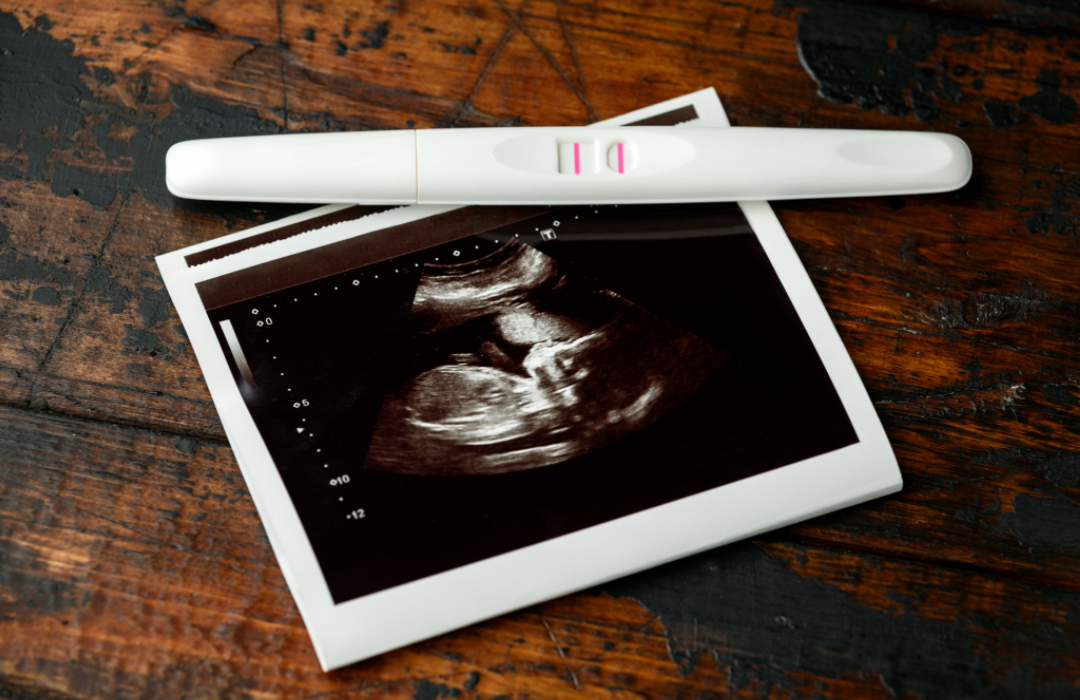Congratulations on embarking on this wonderful journey of pregnancy! The first trimester is a special phase filled with excitement and anticipation as you nurture and protect the precious life growing inside you. However, it can also bring along various challenges such as morning sickness, fatigue, mood swings, and more. In this article, we will provide you with valuable tips and tricks to help you cope with the common symptoms and make your first trimester as comfortable and enjoyable as possible.
During this important phase, finding a source of exceptional support and guidance is invaluable. At the Motherhood Center in Houston, you’ll discover a haven of expertise and experience in prenatal care. Our commitment is to empower expectant parents throughout every step of their journey, extending well beyond pregnancy. Our team of caring professionals offers an array of services, from prenatal classes to doula services and workshops, making us a cherished resource as you embark on the path to parenthood.
What to Expect During the First Trimester of Pregnancy
The first trimester of pregnancy, spanning from week 1 to week 12, is a period filled with wonder and significant changes as you embark on the journey of motherhood. During this transformative phase, your body undergoes various adjustments to create a nurturing environment for the growing life inside you.
Early Pregnancy Symptoms
In the early weeks of the first trimester, you may start experiencing a range of early pregnancy symptoms as your body adapts to the hormonal changes. Fatigue is a common complaint during this time as your body works tirelessly to support the developing baby. Additionally, you may notice breast tenderness as your breasts prepare for breastfeeding. Nausea and morning sickness are also prevalent symptoms that can vary in intensity among women. Frequent urination is another noticeable change caused by the pressure exerted by the expanding uterus on the bladder.
Morning Sickness
A notorious hallmark of the first trimester, morning sickness can be experienced at any time of the day, not just in the morning. While some women may have mild nausea, others may encounter more severe vomiting. The exact cause of morning sickness is not fully understood, but it is believed to be linked to hormonal fluctuations. To alleviate this discomfort, consider eating small, frequent meals throughout the day and keeping snacks, such as crackers, on hand. Staying hydrated by drinking plenty of fluids can also help manage morning sickness.
Mood Swings
Hormonal fluctuations during the first trimester can lead to unpredictable mood swings. You may find yourself experiencing moments of joy and excitement, followed by periods of anxiety or weepiness. These emotional changes are entirely normal and a natural part of the pregnancy process. It’s essential to acknowledge your feelings and communicate them with your partner or a trusted friend for emotional support.
Breast Changes
As your body prepares for the possibility of breastfeeding, your breasts undergo changes to accommodate this new role. You may notice that your breasts become swollen, tender, or more sensitive. The areola, the dark area around the nipples, may also darken and enlarge. These changes are signs that your body is getting ready to provide nourishment for your baby once they arrive.
Frequent Urination
As your uterus grows to accommodate the developing baby, it puts pressure on your bladder. This pressure can lead to an increased frequency of urination. It’s essential to stay hydrated during pregnancy but be prepared to make more trips to the restroom throughout the day.
Fatigue
Feeling unusually tired is a typical symptom in the first trimester. Your body is working hard to support the baby’s growth, and increased progesterone levels can contribute to feelings of exhaustion. To manage fatigue, ensure you get enough rest and sleep. Don’t hesitate to take short naps during the day if needed. Gentle exercise, such as walking or prenatal yoga, can also help boost energy levels.
Keep in mind that every pregnancy is unique, and not all women will experience the same symptoms or in the same intensity. If you have any concerns or questions about what you are experiencing during the first trimester, don’t hesitate to reach out to your healthcare provider. They can provide guidance, support, and reassurance throughout your pregnancy journey. Embrace this beautiful phase of pregnancy and remember to take good care of yourself and your growing baby.
Tips and Tricks for Navigating the First Trimester
The first trimester of pregnancy is a remarkable journey filled with excitement and changes as you prepare to welcome your little one into the world. To help you make the most of this transformative phase, here are eight valuable tips and tricks:
Embrace a Nutritious Diet
Eating a well-balanced diet is crucial during pregnancy. Focus on incorporating a variety of fruits, vegetables, whole grains, lean proteins, and dairy products into your meals. These nutrients not only support your baby’s development but also keep you energized and nourished. During the first trimester, certain nutrients like folic acid, iron, calcium, and omega-3 fatty acids are especially important for the healthy growth of your baby and the prevention of birth defects.
At the Motherhood Center, a trusted resource for expectant mothers in Houston, prioritizing prenatal nutrition is paramount. Our team is dedicated to assisting expectant mothers in making well-informed dietary decisions tailored to their unique requirements. We offer comprehensive prenatal classes that delve into crucial nutritional aspects, empowering you to design a well-rounded meal plan that supports the health of both you and your baby.
Stay Hydrated
Proper hydration is crucial during the first trimester and throughout your pregnancy journey. As your body undergoes significant changes to support the growth and development of your baby, it requires increased fluid intake to meet the demands. Staying hydrated not only benefits you but also ensures the proper functioning of your body’s systems and supports your baby’s well-being.
Adequate hydration helps maintain expanded blood volume, reducing the risk of complications and supporting your cardiovascular system. It also alleviates common discomforts like constipation and reduces the risk of urinary tract infections (UTIs). Additionally, staying hydrated ensures there is enough amniotic fluid to protect and cushion your baby as they grow. Aim to drink at least 8-10 glasses of water daily, and be mindful of signs of dehydration such as dark-colored urine, dizziness, fatigue, and dry mouth. Consult your healthcare provider if you have any concerns or questions about your fluid intake during pregnancy.
Take Prenatal Vitamins
Ensuring you receive adequate nutrition during pregnancy is vital for the healthy development of your baby. Prenatal vitamins play a crucial role in providing essential nutrients that support both your well-being and your baby’s growth. These specialized supplements are designed to complement your diet and fill in any nutritional gaps that may arise during pregnancy.
Prenatal vitamins typically contain essential vitamins and minerals, such as folic acid, iron, calcium, and omega-3 fatty acids. Folic acid is especially critical in the early stages of pregnancy, as it helps prevent neural tube defects in the baby’s brain and spine. Iron supports the increased production of red blood cells, helping prevent anemia in expectant mothers. Calcium is vital for the baby’s bone and teeth development, while omega-3 fatty acids promote brain and vision development. Taking prenatal vitamins as recommended by your healthcare provider ensures that you and your baby receive the necessary nutrients for a healthy and successful pregnancy.
It’s essential to start taking prenatal vitamins even before conception, as many crucial developments occur during the early weeks of pregnancy when you may not yet be aware that you are expecting. Your healthcare provider will advise you on the appropriate dosage and formulation based on your individual needs and medical history. Remember that prenatal vitamins are not a replacement for a healthy diet but rather a valuable supplement to support your nutritional needs during this special time. Consult your healthcare provider to find the right prenatal vitamin for you and your baby’s well-being.
Combat Morning Sickness
Morning sickness, characterized by nausea and sometimes vomiting, is a common and often challenging aspect of the first trimester. While the exact cause of morning sickness is not fully understood, it is believed to be related to hormonal changes in the body. Coping with morning sickness requires patience and experimentation to find what works best for you.
One effective strategy to combat morning sickness is to eat small, frequent meals throughout the day. An empty stomach can worsen nausea, so having small and easily digestible meals can help manage discomfort. Avoiding greasy and spicy foods may also alleviate symptoms. Instead, opt for bland, mild foods that are gentle on your stomach. Ginger, in various forms like ginger tea or ginger candies, is a natural remedy that many find helpful in soothing nausea.
Additionally, sipping on clear fluids or ginger ale can provide relief. If your morning sickness is severe and affecting your ability to stay nourished, talk to your healthcare provider about safe anti-nausea medications or remedies. Remember that morning sickness is usually temporary and tends to improve as you enter the second trimester, so hang in there and try different strategies to find what works best for you.
Prioritize Rest and Manage Stress
During the first trimester of pregnancy, your body works tirelessly to support your baby’s growth, making sufficient rest and stress management essential for your well-being and the healthy progression of your pregnancy.
Aim for 7-9 hours of sleep each night and consider taking short naps during the day if needed. Establishing a relaxing bedtime routine can promote better sleep quality and emotional well-being. Listen to your body’s cues and rest when needed, as pregnancy hormones can contribute to feelings of fatigue and sleepiness.
Managing stress is equally important during this transformative phase. Pregnancy can bring a mix of emotions and anxieties, and finding healthy coping mechanisms is crucial. Practice relaxation techniques like deep breathing, meditation, or prenatal yoga to calm your mind and reduce stress levels. Prenatal yoga, in particular, is a gentle and safe way to stay active and flexible during pregnancy. Motherhood Center, a cherished haven for expectant mothers offers specialized prenatal yoga classes led by experienced instructors who tailor the practice to meet the unique needs of expectant mothers.
In addition to prenatal yoga, Motherhood Center provides prenatal massage services. Prenatal massage is a specialized form of therapy designed to cater to the unique needs of pregnant women. It is performed by certified therapists experienced in working with expectant mothers, ensuring safety and comfort. Prenatal massage helps alleviate common discomforts such as back pain and muscle tension while promoting relaxation and reducing stress and anxiety.
Before scheduling a prenatal massage or enrolling in prenatal yoga classes, consult your healthcare provider to ensure they are suitable for your individual pregnancy journey. Embracing rest, stress management, and self-care with the support of Motherhood Center prepares you for the beautiful journey of motherhood ahead. By prioritizing rest, managing stress, and engaging in activities like prenatal massage and yoga, you nurture both yourself and your growing baby, setting the foundation for a healthy and positive pregnancy experience.
Engage in Low-Impact Exercise
Regular physical activity during pregnancy offers numerous benefits for both you and your baby. Engaging in low-impact exercise is a safe and effective way to stay active and maintain your overall well-being during the first trimester and beyond. Low-impact exercises are gentle on your joints and reduce the risk of injury, making them ideal for expectant mothers.
Walking is a fantastic low-impact exercise that you can easily incorporate into your daily routine. Taking brisk walks not only helps keep you active but also boosts your mood and energy levels. Swimming is another excellent option, as the water’s buoyancy supports your body, relieving pressure on your joints. Prenatal yoga classes, offered at Motherhood Center, are specifically designed to cater to the unique needs of expectant mothers. Led by experienced instructors, these classes focus on gentle stretches, breathing techniques, and relaxation, helping you stay flexible and centered throughout your pregnancy journey.
Participating in prenatal fitness classes at Motherhood Center provides a supportive and encouraging environment where you can connect with other expectant mothers. These classes are designed to be safe and beneficial for pregnant women, with exercises tailored to your individual needs. Staying active through low-impact exercises not only promotes a healthy pregnancy but can also prepare your body for labor and delivery. Always consult your healthcare provider before starting any exercise program, especially if you have any underlying health conditions.
Attend Prenatal Classes
As you journey through the first trimester of pregnancy, attending prenatal classes is an invaluable way to prepare for the exciting road ahead. These classes offer a wealth of information and support for expectant parents, empowering you with knowledge and confidence as you navigate through pregnancy and parenthood.
At Motherhood Center, a celebrated destination for expectant mothers in Houston, you have access to a wide range of prenatal classes and resources. Pregnancy 101 classes provide essential guidance on what to expect during each stage of pregnancy, covering topics like prenatal care, common pregnancy discomforts, and tips for a healthy pregnancy.
Prenatal nutrition classes offer valuable insights into maintaining a well-balanced diet to support your baby’s growth and overall health. These classes are led by experts who help you create a personalized meal plan and address any nutritional concerns you may have.
For those preparing for the journey of parenthood, parenting classes at Motherhood Center are a wonderful resource. These classes cover a variety of topics, including newborn care, infant CPR, and baby essentials, helping you feel more confident and ready to welcome your little one into the world.
Breastfeeding classes offer essential guidance for expectant mothers planning to breastfeed. Led by lactation specialists, these classes provide valuable tips, techniques, and troubleshooting advice to help ensure a successful breastfeeding journey.
Labor rehearsal classes at Motherhood Center are designed to prepare you for the birthing process. Led by experienced childbirth educators, these classes walk you through different labor scenarios, pain management techniques, and relaxation exercises, empowering you to approach childbirth with a sense of readiness and empowerment.
These prenatal classes and resources at Motherhood Center provide a supportive and nurturing environment for expectant parents. By attending these classes, you not only gain valuable knowledge but also connect with other parents-to-be, creating a sense of community and camaraderie. Remember to take advantage of these resources and embrace the opportunity to learn and grow as you prepare for the beautiful journey of parenthood.
Conclusion
Navigating the first trimester of pregnancy is a remarkable and transformative experience that brings both joy and challenges. By prioritizing rest, managing stress, and engaging in low-impact exercise, you can nurture your well-being and create a strong foundation for a healthy pregnancy. Moreover, attending prenatal classes and exploring the wealth of resources at Motherhood Center empowers you with valuable knowledge and support as you prepare for the exciting road ahead.
Motherhood Center, a cherished haven for expectant mothers in Houston, provides a nurturing environment where you can access a variety of prenatal classes and resources designed to cater to the unique needs of expectant parents. From Pregnancy 101 to prenatal nutrition, parenting classes, breastfeeding classes, labor rehearsal, and more, they provide a nurturing environment to help you feel confident and prepared for the journey of parenthood.
As you embrace the beauty of pregnancy and the anticipation of meeting your little one, take advantage of the support and guidance offered by Motherhood Center. Their team of experts is dedicated to providing personalized care and empowering you with the knowledge and resources you need for a positive and memorable pregnancy experience.
To embark on this journey with confidence, we encourage you to reach out to Motherhood Center today. Contact them to learn more about their prenatal classes, resources, and support services, and let them be a part of your cherished journey to parenthood. Embrace the joy of pregnancy, stay informed, and build lasting memories as you welcome the newest addition to your family. With the nurturing guidance of Motherhood Center, you can look forward to a journey filled with love, health, and happiness.
FAQs
What are prenatal classes, and why are they essential during pregnancy?
Prenatal classes are educational sessions specifically designed to prepare expectant parents for pregnancy, childbirth, and early parenthood. These classes cover various topics, such as prenatal care, labor and delivery, newborn care, and breastfeeding. Attending prenatal classes helps parents gain valuable knowledge and confidence, providing them with the tools to make informed decisions and ensure a healthy and positive pregnancy journey.
Is prenatal massage safe during the first trimester of pregnancy?
Yes, prenatal massage is generally safe during the first trimester and throughout pregnancy. Prenatal massage therapists are trained to use gentle techniques that are safe and beneficial for expectant mothers. However, it is essential to consult with your healthcare provider before getting a prenatal massage to ensure it is suitable for your individual pregnancy journey.
How can I manage morning sickness during the first trimester?
To manage morning sickness, try eating small, frequent meals throughout the day to prevent an empty stomach. Avoid greasy and spicy foods, and opt for bland, mild options. Ginger, lemon, and mint can help soothe nausea. If symptoms persist, consider consulting your healthcare provider for safe anti-nausea options.
What is the significance of prenatal nutrition during the first trimester?
Prenatal nutrition is vital during the first trimester and throughout pregnancy as it directly impacts your baby’s growth and development. A well-balanced diet that includes essential nutrients like folic acid, iron, calcium, and omega-3 fatty acids supports your baby’s health and helps prevent birth defects. Consult with your healthcare provider or attend prenatal nutrition classes for personalized dietary guidance.
Can I continue exercising during the first trimester, and what are suitable options?
Yes, exercising during the first trimester is generally safe and beneficial. Low-impact exercises like walking, swimming, and prenatal yoga are excellent options. These exercises help you stay active, boost your mood, and maintain your overall well-being throughout your pregnancy. Always consult your healthcare provider before starting any new exercise routine, especially if you have any underlying health conditions.






